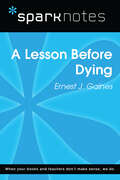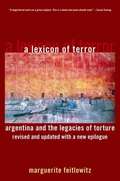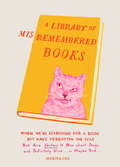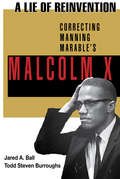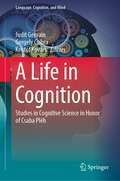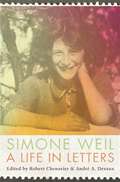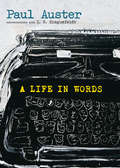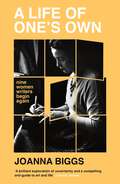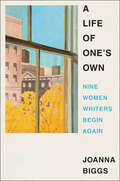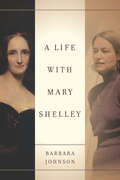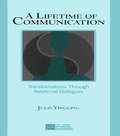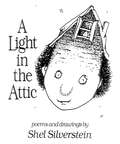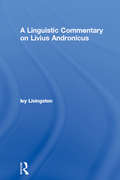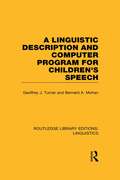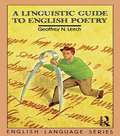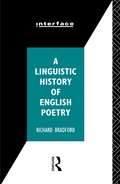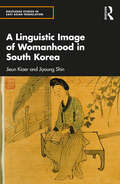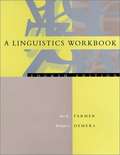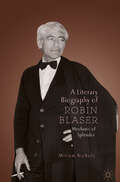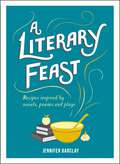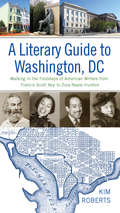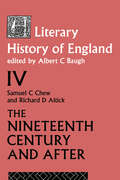- Table View
- List View
A Lesson Before Dying (SparkNotes Literature Guide Series)
by SparkNotesA Lesson Before Dying (SparkNotes Literature Guide) by Ernest J. Gaines Making the reading experience fun! Created by Harvard students for students everywhere, SparkNotes is a new breed of study guide: smarter, better, faster. Geared to what today's students need to know, SparkNotes provides: *Chapter-by-chapter analysis *Explanations of key themes, motifs, and symbols *A review quiz and essay topicsLively and accessible, these guides are perfect for late-night studying and writing papers
A Lexicon of Terror: Revised and Updated with a New Epilogue
by Marguerite FeitlowitzThis updated edition features a new epilogue that chronicles major political, legal, and social developments in Argentina since the book's initial publication. It also continues the stories of the individuals involved in the Dirty War, including the torturers, kidnappers and murderers formerly granted immunity under now dissolved amnesty laws.
A Library of Misremembered Books: When We're Searching for a Book but Have Forgotten the Title
by Marina LuzHow do you find a book when you can't recall the title…or the author? This homage to a common reader's dilemma is a gift the booklover in your life won't soon forget.Readers know all too well the comedy and tragedy of forgetting the name of a must-find book. Inspired by this torturous predicament, artist Marina Luz creates paintings of books based on the descriptions we use when we can't remember their titles—mining Internet book-search forums for the quirky, vague, and often hilarious language we come up with in these moments. This volume collects dozens of these imaginary books into a library all their own: Titles like "Cat, Possibly Named Henry," "It Was All a Dream," or "Something-Something, Beverly Hills" inspire dreaming up their contents, often as entertaining as trying to guess the real book behind them. A celebration of book love unlike any other, this petite book is a clever gift for bibliophiles that will spark knowing smiles.PERFECT GIFT FOR BOOKLOVERS: The collection will spark recognition for everyone who has encountered this phenomenon (so, virtually every reader) and especially those who have worked in a bookstore, who know intimately well how often this dilemma arises. This impulse-priced delight is an excellent way to make book-loving friends feel seen.A UNIQUE APPRECIATION OF BOOK LOVE: This is a loving tribute to the wonderful and bizarre ways that books leave impressions on our souls, if not always perfectly in our memories. It's a fun and fresh appreciation of bibliophilia that still delivers long after the first read.Perfect for:• Bibliophiles• Booksellers• People seeking gifts for the booklovers in their life
A Lie of Reinvention
by Jared Ball Todd Steven BurroughsA Lie of Reinvention is a response to Manning Marable's biography of Malcolm X, A Life of Reinvention. Marable's book was controversially acclaimed by some as his magna opus. At the same time, it was denounced and debated by others as a worthless read full of conjecture, errors, and without any new factual content. In this collection of critical essays, editors Jared Ball and Todd Steven Burroughs lead a group of established and emerging Black scholars and activists who take a clear stance in this controversy: Marable's biography is at best flawed and at worst a major setback in American history, African American studies, and scholarship on the life of Malcolm X.In the tradition of John Henrik Clarke's classic anthology "William Styron's Nat Turner: Ten Black Writers Respond," this volume provides a striking critique of Marable's text. In 1968, Clarke and his assembled writers felt it essential to respond to Styron's fictionalized and ahistorical Nat Turner, the heroic leader of one of America's most famous revolts against enslavement. In A Lie of Reinvention, the editors sense a different threat to an African American icon, Malcolm X. This time, the threat is presented as an authoritative biography. To counter the threat, Ball and Burroughs respond with a barbed collection of commentaries of Marable's text.The essays come from all quarters of the Black community. From behind prison walls, Mumia Abu-Jamal revises his prior public praise of Marable's book with an essay written specifically for this volume. A. Peter Bailey, a veteran journalist who worked with Malcolm X's Organization for Afro-American Unity, disputes how he is characterized in Marable's book. Bill Strickland, who also knew Malcolm X, provides what he calls a "personal critique" of the biography. Younger scholars such as Kali Akuno, Kamau Franklin, Sundiata Keita Cha-Jua, Christopher M. Tinson, Eugene Puryear and Greg Thomas join veterans Rosmari Mealy, Raymond Winbush, Amiri Baraka and Karl Evanzz in pointing out historical problems and ideological misinterpretations in Marable's work.
A Life Worth Living
by Robert ZaretskyExploring themes that preoccupied Albert Camus--absurdity, silence, revolt, fidelity, and moderation--Robert Zaretsky portrays a moralist who refused to be fooled by the nobler names we assign to our actions, and who pushed himself, and those about him, to challenge the status quo. For Camus, rebellion against injustice is the human condition.
A Life in Cognition: Studies in Cognitive Science in Honor of Csaba Pléh (Language, Cognition, and Mind #11)
by Judit Gervain Gergely Csibra Kristóf KovácsThis edited book offers a broad selection of interdisciplinary studies within cognitive science. The book illustrates and documents how cognitive science offers a unifying framework for the interaction of fields of study focusing on the human mind from linguistics and philosophy to psychology and the history of science. A selection of renowned contributors provides authoritative historical, theoretical and empirical perspectives on more than six decades of research with a special focus on the progress of cognitive science in Central Europe. Readers encounter a bird’s eye view of geographical and linguistic diversity brought about by the cognitive revolution, as it is reflected in the writings of leading authors, many of whom are former students and collaborators of Csaba Pléh, a key figure of the cognitive turn in Central Europe, to whom this book is dedicated. The book appeals to students and researchers looking for the ways various approaches to the mind and the brain intersect.
A Life in Letters
by Simone WeilThe inspiring letters of philosopher, mystic, and freedom fighter Simone Weil to her family, presented for the first time in English.Now in the pantheon of great thinkers, Simone Weil (1909–1943) lived largely in the shadows, searching for her spiritual home while bearing witness to the violence that devastated Europe twice in her brief lifetime. The letters she wrote to her parents and brother from childhood onward chart her intellectual range as well as her itinerancy and ever-shifting preoccupations, revealing the singular personality at the heart of her brilliant essays.The first complete collection of Weil’s missives to her family, A Life in Letters offers new insight into her personal relationships and experiences. The letters abound with vivid illustrations of a life marked by wisdom as much as seeking. The daughter of a bourgeois Parisian Jewish family, Weil was a troublemaking idealist who preferred the company of miners and Russian exiles to that of her peers. An extraordinary scholar of history and politics, she ultimately found a home in Christian mysticism. Weil paired teaching with poetry and even dabbled in mathematics, as evidenced by her correspondence with her brother, André, who won the Kyoto Prize in 1994 for the famed Weil Conjectures.A Life in Letters depicts Simone Weil’s thought taking shape amid political turmoil, as she describes her participation in the Spanish struggle against fascism and in the transatlantic resistance to the Nazis. An introduction and notes by Robert Chenavier contextualize the letters historically and intellectually, relating Weil’s letters to her general body of writing. This book is an ideal entryway into Weil’s philosophical insights, one for both neophytes and acolytes to treasure.
A Life in Words: In Conversation with I. B. Siegumfeldt
by Paul Auster I. B. SiegumfeldtAn inside look into Paul Auster's art and craft, the inspirations and obsessions, mesmerizing and dramatic in turn.A remarkably candid, and often surprisingly dramatic, investigation into one writer's art, craft, and life, A Life in Words is rooted in three years of dialogue between Auster and Professor I. B. Siegumfeldt, starting in 2011, while Siegumfeldt was in the process of launching the Center for Paul Auster Studies at the University of Copenhagen. It includes a number of surprising disclosures, both concerning Auster's work and about the art of writing generally. It is a book that's full of surprises, unscripted yet amounting to a sharply focused portrait of the inner workings of one of America's most productive and successful writers, through all twenty-one of Auster's narrative works and the themes and obsessions that drive them.
A Life of One's Own: Nine Women Writers Begin Again
by Joanna BiggsI took off my wedding ring - a gold band with half a line of 'Morning Song' by Sylvia Plath etched inside - and for weeks afterwards, my thumb would involuntarily reach across my palm for the warm bright circle that had gone. I didn't throw the ring into the long grass, like women do in the movies, but a feeling began bubbling up nevertheless, from my stomach to my throat: it could fling my arms out. I was free.A few years into her marriage and feeling societal pressure to surrender to domesticity, Joanna Biggs found herself longing for a different kind of existence. Was this all there was? She divorced without knowing what would come next.Newly untethered, Joanna returned to the free-spirited writers of her youth and was soon reading in a fever - desperately searching for evidence of lives that looked more like her own, for the messiness and freedom, for a possible blueprint for intellectual fulfillment.In A Life of One's Own, Mary Wollstonecraft, George Eliot, Zora Neale Hurston, Virginia Woolf, Simone de Beauvoir, Sylvia Plath, Toni Morrison, and Elena Ferrante are all taken down from their pedestals, their work and lives seen in a new light. Joanna wanted to learn more about the conditions these women needed to write their best work, and how they addressed the questions she herself was struggling with: Is domesticity a trap? Is life worth living if you have lost faith in the traditional goals of a woman? Why is it so important for women to read one another?This is a radical and intimate examination of the unconventional paths these women took - their pursuits and achievements but also their disappointments and hardships. And in exploring the things that gave their lives the most meaning, we find fuel for our own singular intellectual paths.
A Life of One's Own: Nine Women Writers Begin Again
by Joanna BiggsNamed a Most Anticipated Book of 2023 by the New York Times, The Week, Vulture, Elle, and The MillionsA piercing blend of memoir, criticism, and biography examining how women writers across the centuries carved out intellectual freedom for themselves—and how others might do the sameI took off my wedding ring for the last time—a gold band with half a line of “Morning Song” by Sylvia Plath etched inside—and for weeks afterwards, my thumb would involuntarily reach across my palm for the warm bright circle that had gone. I didn’t fling the ring into the long grass, like women do in the movies, but a feeling began bubbling up nevertheless, from my stomach to my throat: it could fling my arms out. I was free. . . .A few years into her marriage and feeling societal pressure to surrender to domesticity, Joanna Biggs found herself longing for a different kind of existence. Was this all there was? She divorced without knowing what would come next.Newly untethered, Joanna returned to the free-spirited writers of her youth and was soon reading in a fever—desperately searching for evidence of lives that looked more like her own, for the messiness and freedom, for a possible blueprint for intellectual fulfillment.In A Life of One’s Own, Mary Wollstonecraft, George Eliot, Zora Neale Hurston, Virginia Woolf, Simone de Beauvoir, Sylvia Plath, Toni Morrison, and Elena Ferrante are all taken down from their pedestals, their work and lives seen in a new light. Joanna wanted to learn more about the conditions these women needed to write their best work, and how they addressed the questions she herself was struggling with: Is domesticity a trap? Is life worth living if you have lost faith in the traditional goals of a woman? Why is it so important for women to read one another?This is a radical and intimate examination of the unconventional paths these women took—their pursuits and achievements but also their disappointments and hardships. And in exploring the things that gave their lives the most meaning, we find fuel for our own singular intellectual paths.
A Life with Mary Shelley
by Barbara JohnsonIn 1980, deconstructive and psychoanalytic literary theorist Barbara Johnson wrote an essay on Mary Shelley for a colloquium on the writings of Jacques Derrida. The essay marked the beginning of Johnson's lifelong interest in Shelley as well as her first foray into the field of "women's studies," one of whose commitments was the rediscovery and analysis of works by women writers previously excluded from the academic canon. Indeed, the last book Johnson completed before her death was Mary Shelley and Her Circle, published here for the first time. Shelley was thus the subject for Johnson's beginning in feminist criticism and also for her end. It is surprising to recall that when Johnson wrote her essay, only two of Shelley's novels were in print, critics and scholars having mostly dismissed her writing as inferior and her career as a side effect of her famous husband's. Inspired by groundbreaking feminist scholarship of the seventies, Johnson came to pen yet more essays on Shelley over the course of a brilliant but tragically foreshortened career. So much of what we know and think about Mary Shelley today is due to her and a handful of scholars working just decades ago. In this volume, Judith Butler and Shoshana Felman have united all of Johnson's published and unpublished work on Shelley alongside their own new, insightful pieces of criticism and those of two other peers and fellow pioneers in feminist theory, Mary Wilson Carpenter and Cathy Caruth. The book thus evolves as a conversation amongst key scholars of shared intellectual inclinations while closing the circle on Johnson's life and her own fascination with the life and circle of another woman writer, who, of course, also happened to be the daughter of a founder of modern feminism.
A Lifetime of Communication: Transformations Through Relational Dialogues (LEA's Series on Personal Relationships)
by Julie YinglingA Lifetime of Communication explores the developmental processes that make for uniquely human change and growth. In this distinctive work, author Julie Yingling utilizes a single case example of a child, her parents, and other influential figures to demonstrate developmental interaction and transformational life events. Using relational and dialogic perspectives, Yingling follows the child from infancy into adolescence and adulthood, through the stages which the child acquires the means to communicate, to form and develop through relationships, to build human cognitive processes, and to understand the self as a responsible part of the social world. The work presents traditional and cutting-edge developmental theories as well as current research and relational perspectives in a palatable framework, employing a case example from a person's life at the start of each content chapter. Yingling examines communication and cognition in the various stages of human development, making connections between communication, relationships, and maturation. She also distinguishes the biological and physiological portions of development from those that are relational and self-directed. She concludes the volume with a summary of relational dialogical theory and a discussion of the implications of this perspective of development-both for the future of communication study and for personal growth.This monograph offers many new insights to scholars in human development, relationships, family studies, social psychology, and others interested in communication and relationships across the life span. It is also appropriate for advanced undergraduate and graduate courses in relationships, developmental communication, and relational communication.
A Light in the Attic
by Shel SilversteinNOW AVAILABLE AS AN EBOOK! From New York Times bestselling author Shel Silverstein, the creator of the beloved poetry collections Where the Sidewalk Ends, Falling Up, and Every Thing On It, comes an imaginative book of poems and drawings—a favorite of Shel Silverstein fans young and old. This digital edition also includes twelve poems previously only available in the special edition hardcover. A Light in the Attic delights with remarkable characters and hilariously profound poems in a collection readers will return to again and again.Here in the attic you will find Backward Bill, Sour Face Ann, the Meehoo with an Exactlywatt, and the Polar Bear in the Frigidaire. You will talk with Broiled Face, and find out what happens when Somebody steals your knees, you get caught by the Quick-Digesting Gink, a Mountain snores, and They Put a Brassiere on the Camel. Come on up to the attic of Shel Silverstein and let the light bring you home. And don't miss these other Shel Silverstein ebooks, The Giving Tree, Where the Sidewalk Ends, and Falling Up!
A Linguistic Commentary on Livius Andronicus (Studies in Classics)
by Ivy LivingstonAs the oldest literary Latin preserved in any quantity, the language of Livius shows many features of linguistic interest and raises intriguing questions of phonolgy, morphology and syntax.
A Linguistic Description and Computer Program for Children's Speech (Routledge Library Editions: Linguistics)
by Geoffrey J. Turner Bernard A. MohanThis book presents a framework for the linguistic analysis of speech and a computer program to process the results of this analysis. The model of description for the linguistic analysis is that known as ‘scale-and-category’ grammar. It is particularly suited for a study of how people use their language, and especially for a sociologically-oriented study of linguistic behaviour. By incorporating a concept of ‘delicacy’, it enables the investigator to vary, according to his particular interests, the amount of detail he enters into at various points in the description. The present authors have made use of this facility and discuss the special interests, sociological and psychological, that influenced their choice of detail. The computer program analyzes the grammatical structures written in a linear notation. A second version has been written which allows easy modification to handle a variety of grammatical schemes, and the program has application to the processing of the analysis of sequential behaviour in general, especially where there are complex relations between the units analyzed.
A Linguistic Guide to English Poetry
by Geoffrey N. LeechSeeks to demonstrate that the study of English poetry is enriched by the insights of modern linguistic analysis, and that linguistic and critical disciplines are not separate but complementary. Examining a wide range of poetry, Professor Leech considers many aspects of poetic style, including the language of past and present, creative language, poetic licence, repetition, sound, metre, context and ambiguity.
A Linguistic History of Ancient Cyprus
by Philippa M. SteeleThis pioneering volume approaches the languages and scripts of ancient Cyprus from an interdisciplinary point of view, with a primarily linguistic and epigraphic approach supplemented by a consideration of their historical and cultural context. The focus is on furthering our knowledge of the non-Greek languages/scripts, as well as appreciating their place in relation to the much better understood Greek language on the island. Following on from recent advances in Cypro-Minoan studies, these difficult, mostly Late Bronze Age inscriptions are reassessed from first principles. The same approach is taken for non-Greek languages written in the Cypriot Syllabic script during the first millennium BC, chiefly the one usually referred to as Eteocypriot. The final section is then dedicated to the Phoenician language, which was in use on Cyprus for some hundreds of years. The result is a careful reappraisal of these languages/scripts after more than a century of sometimes controversial scholarship.
A Linguistic History of English Poetry (Interface)
by Richard BradfordThis introductory book takes the reader through literary history from the Renaissance to Postmodernism, and considers individual texts as paradigms which can both reflect and unsettle their broader linguistic and cultural contexts. Richard Bradford provides detailed readings of individual texts which emphasize their relation to literary history and broader socio-cultural contexts, and which take into account developments in structuralism and postmodernism. Texts include poems by Donne, Herbert, Marvell, Milton, Pope, Wordsworth, Coleridge, Blake, Keats, Hopkins, Browning, Pound, Eliot, Carlos Williams, Auden, Larkin and Geoffrey Hill.
A Linguistic Image of Womanhood in South Korea (Routledge Studies In East Asian Translation Ser.)
by Jiyoung Shin Jieun KiaerA Linguistic Image of Womanhood in South Korea examines the verbal and non-verbal techniques used by contemporary South Korean women to navigate their society. South Korea is extremely hierarchical, and this is expressed through a complex array of different politeness levels in words, gestures, and behaviours. These hierarchies were formed over 500 years ago with the introduction of Neo-Confucianism from China, but patriarchal and paternalistic values still linger in contemporary Korean society. In this book, the authors have coined the term ‘language cosmetics’ to describe how women in South Korea modify their language and behaviour to conform to social expectations. The book examines womanhood and femininity as seen in popular Korean films, K-dramas, and K-pop. The authors note that feminine language and behaviour are not limited to women (as seen by the practice of aegyo or ‘acting cute’ within Korean boy bands), and they describe the tensions between gender hierarchy and socioeconomic status (as seen in the powerful and elegant samonim ladies of K-drama). This book will be informative for those studying and researching in the fields of Asian studies, cultural studies, linguistics, and East Asian languages, particularly those analysing how society and gender have an impact upon language.
A Linguistics Workbook (4th edition)
by Ann K. FarmerIt is extremely important that students become familiar with the structural properties of languages other than English. In A Linguistics Workbook, therefore, we have provided exercises based on a wide variety of the world's languages.
A Literary Approach to the New Testament
by John Paul PritchardFrom the book: The literary approach views form and content as one and is concerned with what the book is. Just as the literary interpreter of Chaucer requires a wealth of information and insight concerning the times of Chaucer and the influences at work in him, so the literary interpreter of the New Testament requires information about it and insights into it. Knowing what the book is in itself and in its relations frequently clarifies significantly what the book means. General readers will profit from the presentation of this knowledge in developing their own insights into the New Testament. In asserting that the reader of the New Testament will find greater reward and understanding if he is a Christian, there is no intent to belittle the values of the book for non-Christian readers. Such readers should, however, exercise what Coleridge described as "the willing suspension of disbelief for a season" in order to enter, at least temporarily, into the spirit of the work. If we endeavor to read in this spirit, we shall find the work richer and more rewarding. For literary interpretation of the New Testament, the traditional Sunday school presentation has contributed little beyond acquainting children with episodes and agents. In it books are seldom treated as wholes made by an author with specific purpose and artistic designs. Books are to be analyzed upon sound anatomical principles for study of what they are before ideas for moral and religious instruction are drawn from them.
A Literary Biography of Robin Blaser: Mechanic of Splendor (Modern and Contemporary Poetry and Poetics)
by Miriam NicholsA Literary Biography of Robin Blaser: Mechanic of Splendor is the first major study illustrating Robin Blaser’s significance to North American poetry. The poet Robin Blaser (1925–2009) was an important participant in the Berkeley Renaissance of the 1950s and San Francisco poetry circles of the 1960s. The book illuminates Blaser’s distinctive responses to and relationships with familiar writers including Robert Duncan, Jack Spicer, and Charles Olson via their correspondence. Blaser contributed to the formation of the serial poem as a dominant mode in post-war New American poetry through his work and engagement with the poetry communities of the time. Offering a new perspective on a well-known and influential period in American poetry, Miriam Nichols combines the story of Blaser’s life—coming from a mid-western conservative religious upbringing and his coming of age as a gay man in Berkeley, Boston, and San Francisco—with critical assessments of his major poems through unprecedented archival research. This literary biography presents Blaser’s poetry and poetics in the many contexts from which it came, ranging from the Berkeley Renaissance to the Vancouver scene; from surrealism to phenomenology; from the New American poetry to the Canadian postmodern; from the homoerotic to high theory. Throughout, Blaser’s voice is heard in the excitement of his early years in Berkeley and Boston and the seriousness of the later years where he was doing most of his living in his work.
A Literary Feast: Recipes Inspired by Novels, Poems and Plays
by Jennifer Barclay‘One cannot think well, love well, sleep well, if one has not dined well.’Virginia Woolf, A Room of One’s OwnPrepare your senses for a feast of delicious food scenes in literature accompanied with recipes to bring them to life in your very own kitchen, including Turkish delight Edmund wouldn’t be able to resist, roast goose the Cratchits would be proud of and cucumber sandwiches Algernon would be loath to share.This book is perfect for anyone who enjoys spending their days with a book in one hand and a saucepan in the other.
A Literary Guide to Washington, DC: Walking in the Footsteps of American Writers from Francis Scott Key to Zora Neale Hurston
by Kim RobertsThe site of a thriving literary tradition, Washington, DC, has been the home to many of our nation’s most acclaimed writers. From the city’s founding to the beginnings of modernism, literary luminaries including Walt Whitman, Paul Laurence Dunbar, Alice Dunbar-Nelson, Henry Adams, Langston Hughes, and Zora Neale Hurston have lived and worked at their craft in our nation’s capital. In A Literary Guide to Washington, DC, Kim Roberts offers a guide to the city’s rich literary history. Part walking tour, part anthology, A Literary Guide to Washington, DC is organized into five sections, each corresponding to a particularly vibrant period in Washington’s literary community. Starting with the city’s earliest years, Roberts examines writers such as Hasty-Pudding poet Joel Barlow and "Star-Spangled Banner" lyricist Francis Scott Key before moving on to the Civil War and Reconstruction and touching on the lives of authors such as Charlotte Forten Grimké and James Weldon Johnson. She wraps up her tour with World War I and the Jazz Age, which brought to the city some writers at the forefront of modernism, including the first American to win the Nobel Prize for Literature, Sinclair Lewis. The book’s stimulating tours cover downtown, the LeDroit Park and Shaw neighborhoods, Lafayette Square, and the historic U Street district, bringing the history of the city to life in surprising ways.Written for tourists, literary enthusiasts, amateur historians, and armchair travelers, A Literary Guide to Washington, DC offers a cultural tour of our nation's capital through a literary lens.
A Literary History of England Vol. 4
by Richard D. Altick Samuel C. ChewFirst published in 1959. The scope of this four volume work makes it valuable as a work of reference, connecting one period with another an placing each author clearly in the setting of his time. This is the fourth volume and includes the Nineteeth Century and after (1789-1939).
